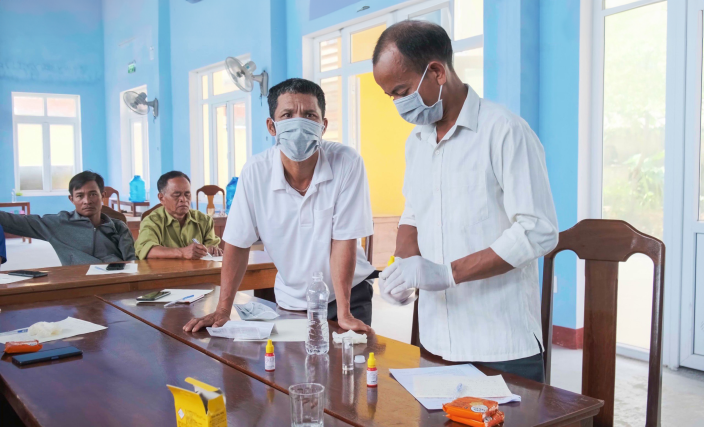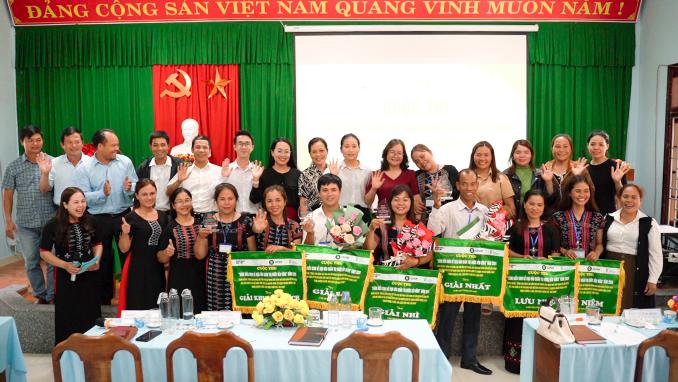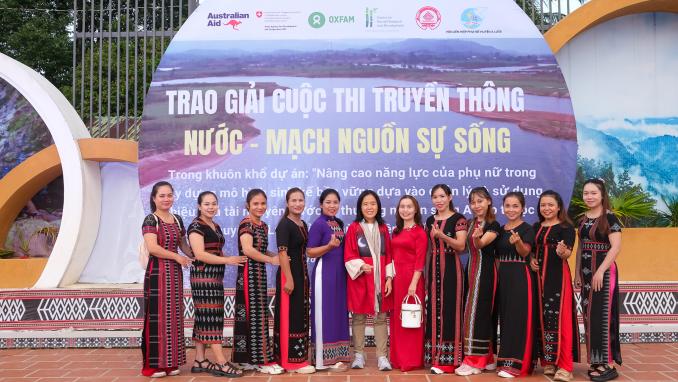“Initially, we were quite apprehensive, but thanks to the encouragement from the project and the opportunity to learn, we mastered the techniques and learned to apply scientific advancements, combining clean farming practices with fish farming.”
Life in Can Te village, nestled in A Luoi district, Thua Thien Hue province, revolves around the A Sap river, as nature hasn't bestowed upon its people abundant resources. Their livelihoods, meager and precarious, predominantly rely on traditional farming methods, yet often fail to maximize the economic benefits of water resource management and utilization.
Mr. Ho Van Thang is one of the ten core group leaders in Can Te village involved in the “Enhancing Women's Capacities in Building Sustainable Livelihood Models based on Efficient Management and Utilization of Water Resources" (IP2) project* from its inception. He took charge of disseminating knowledge on water resource management and fostering sustainable livelihoods for the local community. Despite facing many challenges due to minor congenital disabilities in his feet and eyes, Thang actively engages in sharing knowledge and techniques to enhance the sustainability of livelihood activities reliant on water sources. He particularly focuses on the participation of women and people with disabilities.
Thang has inspired the community to develop and participate in the initiative to raise fish in cages, paving the way for a new approach to efficient and sustainable water resource utilization. "Initially, we were quite apprehensive, but thanks to the encouragement from the project and the opportunity to learn, we mastered the techniques and learned to apply scientific advancements, combining clean farming practices with fish farming," Thang said with a smile. After two harvests, the cage fish farming model brought in profits exceeding 60 million Dong, significantly improving the lives of community members.

Mr. Ho Van Thang confidently discussed and shared his opinions during a field trip in the Mekong Delta within the framework of the IP 2 project.
With the support of experts, community-based livelihood models like Thang's have reshaped the mindset and practices of locals regarding the economic value of water resources, fostering sustainable livelihoods based on resources and enhancing community autonomy.
Thang's livelihood group is aiming to connect with local production groups and cooperatives to enhance the economic efficiency of water resources and environmental protection. He plans to support other households in the village to build similar livelihood models.
Thang's story reaffirms the importance of community collaboration and participation in water resource management, ensuring equitable access and increasing economic efficiency from resources, contributing to sustainable development.
The IP2 Project is implemented by the Centre for Social Research and Development (CSRD) and Oxfam in Vietnam, under the Mekong Regional Water Governance Program, jointly funded by the Australian Department of Foreign Affairs and Trade (DFAT) and the Swiss Agency for Development and Cooperation (SDC).


